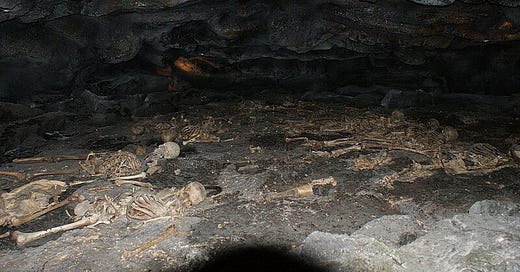Jeju Peace for the Sea
A camp aiming to build solidarity for peace among islands in East Asia: An agenda seven decades delayed. C.J. Anderson-Wu reflects on Jeju Island's Peace for the Sea camp.
By C.J. Anderson-Wu
Jeju, April 3, 1948—where a tenth of the population was groundlessly accused of being "reds," shot, and killed by the armed forces of the military or police. These people died for no reason, not because they were communists, but because they were shot to become communists.
~Hyun Ki-Young
The Jeju Peace for the Sea is an international peace camp held on Jeju Island, South Korea. The camp aims to build solidarity for peace among islands in East Asia, such as Okinawa, Taiwan, and Jeju. Participants engage in various activities, including discussions on military bases, environmental damage, historical struggles, and militarism. The camp also includes ocean activities, human chains, and village festivals. It's a movement to promote peace and demilitarization in the region.
The Jeju Peace for the Sea was established in 2014. The first camp was held in Gangjeong village on Jeju Island in memory of the Jeju Uprising in 1948.
The Jeju Uprising—also known as the Jeju Massacre or the April 3 Incident—was a series of protests and violent clashes on Jeju Island that began on April 3, 1948, against the division of Korea. The protests were initially led by pro-communist demonstrators. The South Korean government, with the support of the U.S. military, responded with a brutal crackdown, falsely labeling the protests as a communist revolt.
This led to a violent suppression that lasted until 1954, resulting in the deaths of tens of thousands of civilians. The exact number of casualties is estimated to be between 30,000 and 60,000 people. The uprising and its suppression had a profound impact on Jeju Island and its residents, leaving a legacy of trauma and resistance. It wasn't until the early 2000s that South Korea began to officially acknowledge and discuss the events of the Jeju Uprising.
Although South Korea belonged to the democratic camp during the Cold War, the political climate under authoritarian regimes, particularly under President Syngman Rhee and later Park Chung-Hee, was marked by strict censorship and suppression of dissent, which played a significant role in the delayed acknowledgment of the Jeju Uprising.
Acknowledging the Jeju Uprising would have meant admitting to a significant and violent suppression of civilians, which could undermine the government's authority and legitimacy. It wasn't until South Korea’s democratization movement in the late 1980s and the establishment of a more open political environment that the events of the Jeju Uprising began to be officially recognized and investigated.
The National Committee for Investigation of the Truth about the Jeju Uprising was established in 2000, marking a significant step towards addressing and reconciling with this historical tragedy.
The camp of Jeju Peace for the Sea is organized by the Team for Inter-Island Peace Solidarity. The camp is supported by various peace organizations and activists from different regions, including Okinawa, Taiwan, and Jeju. The event brings together participants from around the world to promote peace and solidarity among islands in East Asia.
Cindy Lin, a Taiwanese art event project manager and a graduate student of Southeast Asian Studies from the National Chi Nan University, participated in its 2024 camp in Jeju and was impressed by the efforts of the volunteer staff. She felt it was important for people from different regions to meet and to understand each other’s situations and give a bit of strength to one another. Lin shared with me that ritualizing some activities also helped, “Every morning at 7 a.m. peace activists worshiped at the entrance of the military camp, praying for peace. After truly following along with the worship and praying, one feels that the strength comes from within and connects with nature.”
Keep reading with a 7-day free trial
Subscribe to Consequence to keep reading this post and get 7 days of free access to the full post archives.




